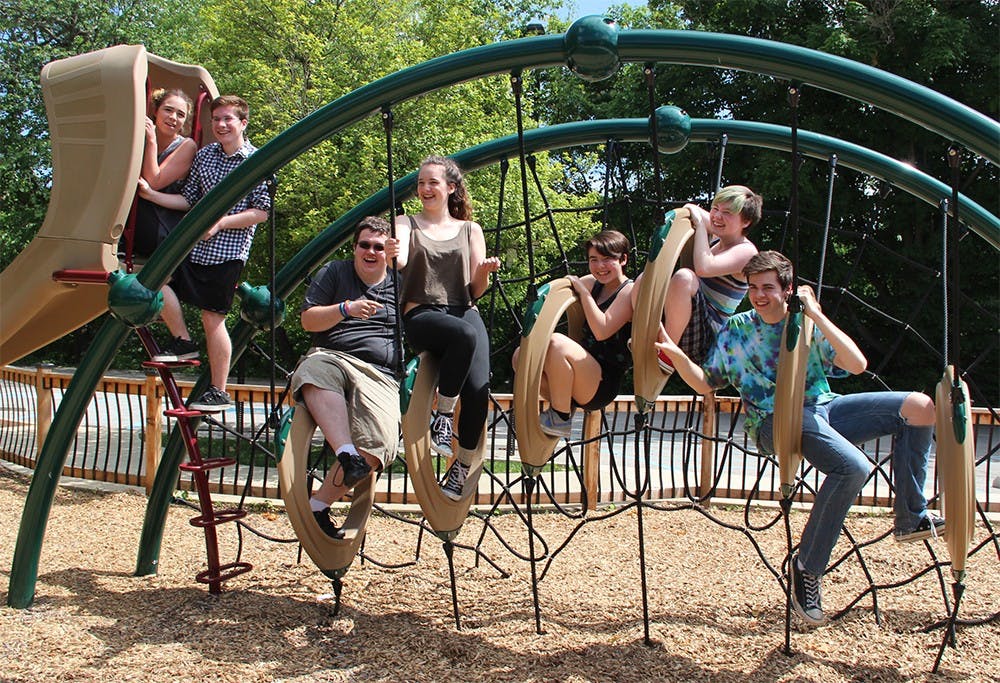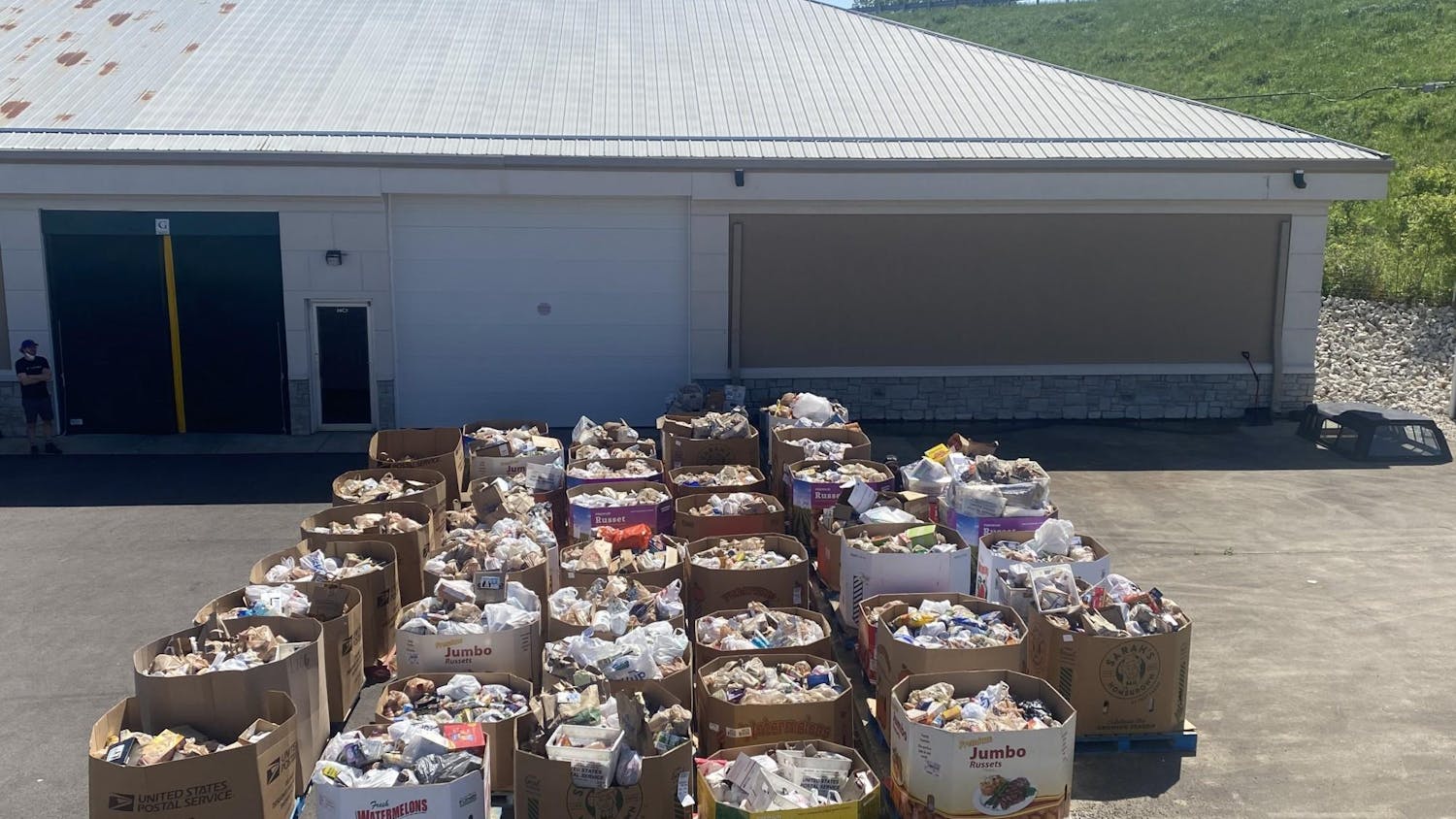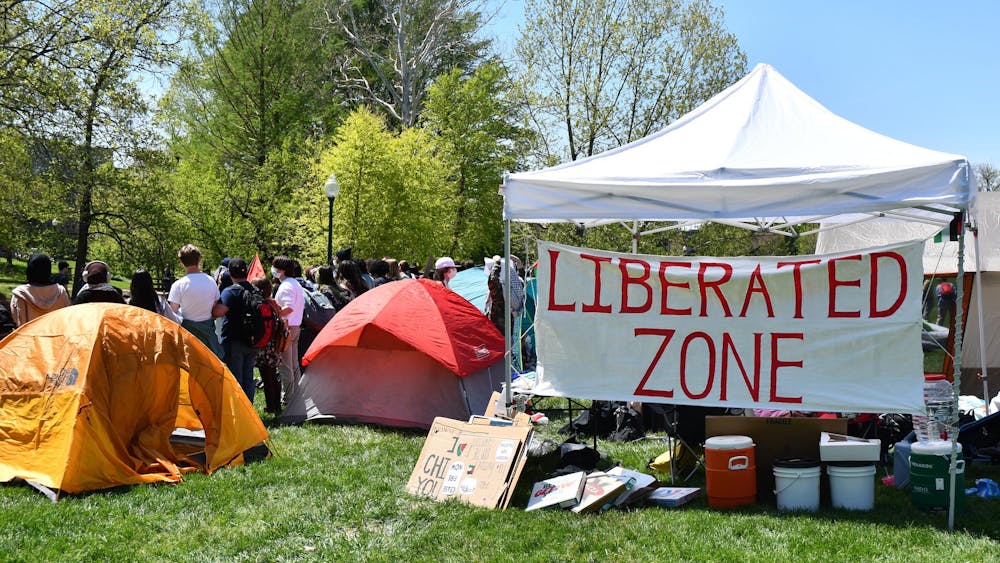For all of these reasons, members of Bloomington Prism Youth Community are about to give their teachers a lesson.
Prism Community is a social group for lesbian, gay, bisexual, transgender, queer and allied youth ages 12 through 20. They do fun things, like go to Kings Island, but they also have a much deeper purpose — to educate and to advocate.
“We specifically noticed a lack of education in the teaching staff and how some teachers would want to be educated but just didn’t know the terms or know where to go to get that education,” Spencer, the president of the group, said. “So we wanted to offer specific opportunities for them to learn about lesbian, gay, bisexual, trans and queer problems.”
One of the problems group members have experienced is teachers unknowingly making cisnormative comments, or comments which assume everyone’s personal identity conforms with what society expects of their gender, in class.
“Like in one of my classes there was a picture of an author and the teacher goes, ‘Oh, ladies, isn’t this guy attractive?’” Becca, the group’s vice president who just graduated from middle school, said. “It’s just hard to feel included when everything goes back to heteronormativity and when I don’t fit in with that generalization.”
Another example happened when a class was discussing Adam’s apples. One student mentioned girls don’t have them, to which the teacher replied, “Yeah, you want to stay away from girls with Adam’s apples.”
In health classes, even the curriculum is often devoted solely to straight, or cisgender or cissexual, students.
“Heterosexuals do deserve to learn about sexual health,” Isaac, the chair of the education and training committee, said. “But, then again, as a bisexual trans guy, I deserve to know what should I do too. What sorts of options are available for me? I didn’t even know that internal condoms existed until like 3 months ago.”
Addressing obviously hurtful comments made by other students is another instance when group members feel teachers often fall short.
“A lot of teachers will just intervene and tell students to stop,” Laura Ingram, the group’s adult leader and founder, said. “Instead, they could take it as a teachable moment and be like, ‘Ok wait. What are you actually trying to say? Because you just called your homework gay, and homework can’t have a sexuality.’”
These disciplinary problems became especially obvious this past semester when students at Bloomington High School North started the “Hands Up for Heterosexuality” club, a straight pride group.
Group members say it’s actions like this that make them feel unsafe.
“In gym class, when you’re told boys over here and girls over here, the people who don’t fit in or feel comfortable with one of those groups are worried what would happen if they went to the one they actually identify with,” Becca said.
This same discomfort is felt when transgender youth have to go to the bathroom or change their clothes.
Every time Isaac has to use the restroom, he has to trek to the school office bathrooms, on the opposite side of the building from all of his classes. He changes for gym in the coach’s office. He didn’t try out for the track team because he knew they would stick him with the girls.
“We need to change the rules, and then if we can stick up for those policies it might start to change mindsets,” he said. “Then people might start to think, ‘Wow, that’s kind of dumb that I bug them for using the bathroom. They just have to pee.’”
In order to make that change, the group has started a summer campaign. They recently received a city grant they will use to develop training programs for professionals who serve young people and create online resources they can use when they are unsure of how to deal with a certain situation.
“There are lot’s of decisions being made about youth,” Isaac said. “What kind of teaching is used, what kind of language we’re exposed to and that kind of thing. But they’re speaking to people who used to be youth without asking the kids what’s best for you.”
Another part of their campaign includes community-wide education nights. The next one, “Going Beyond the LGBT,” will take place ?June 9.
“My goal is to create a space for them in order to be heard,” Ingram said. “These kids are incredibly well-spoken and thoughtful and intelligent, and they’re just going to set the world on fire with awesomeness.”






